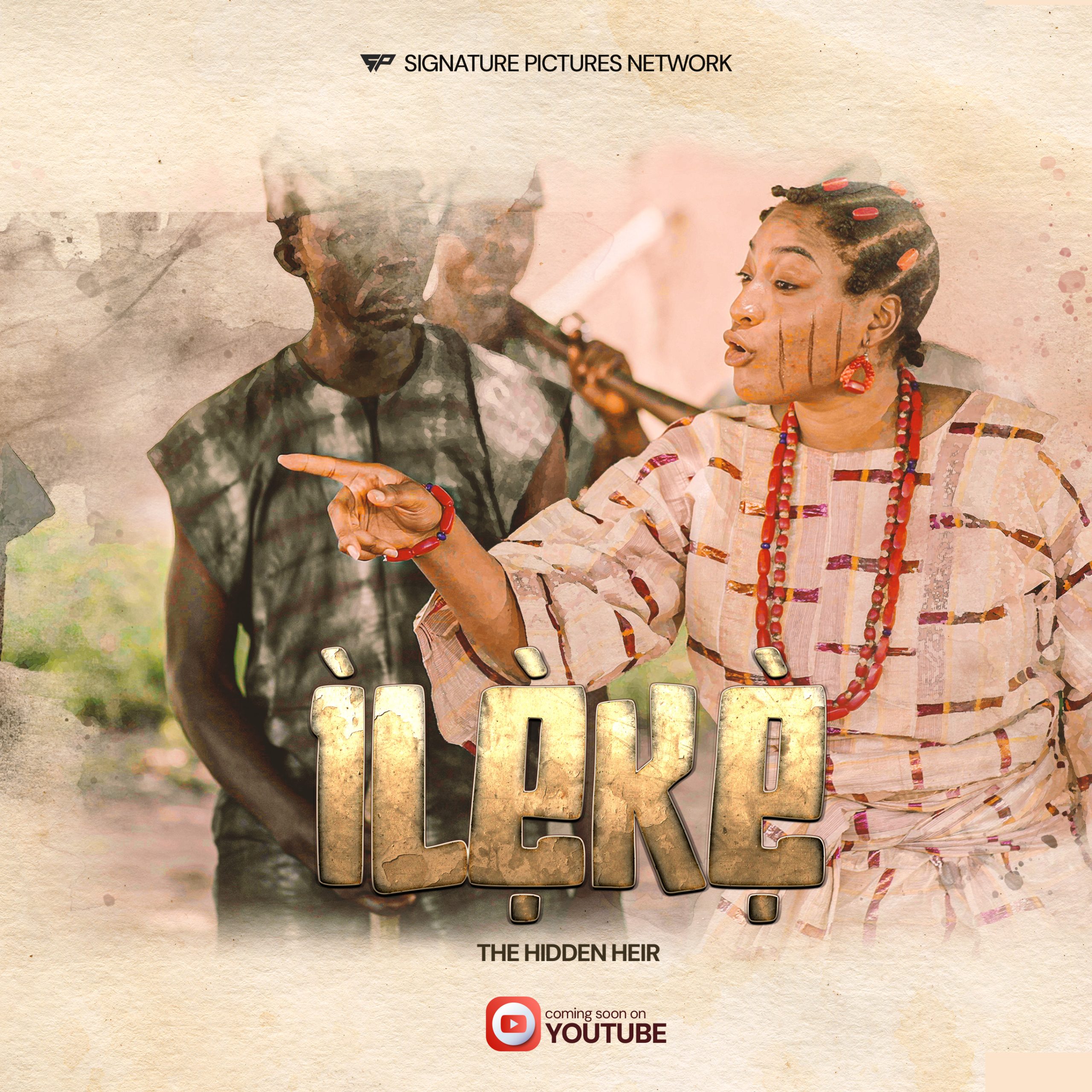In the world of entertainment, the success of a film or TV series often rests on the shoulders of its talented actors. Ileke, a captivating drama that weaves together themes of power, fate, and redemption, owes much of its allure to the performances of its actors. While the narrative and direction of a story provide the skeleton, it is the actors who breathe life into the characters, making them relatable, complex, and unforgettable.
Ileke is no exception. The series showcases some of the most talented and renowned actors in the industry today. Their dedication, passion, and commitment to their roles elevate the show, making it a compelling watch for audiences across the globe. In this blog post, we will take a deep dive into the significance of the actors in Ileke without focusing on any specific names. Instead, we will explore the qualities that make the cast stand out and how they bring the world of Ileke to life.
The Role of Acting in Bringing Ileke to Life
The world of Ileke is one that is rich with mystery, drama, and emotional complexity. The series is set in a mystical environment where the lines between fate and free will are often blurred. For such a world to come alive, the actors must possess a unique combination of skills: the ability to embody the nuances of their characters, convey emotions authentically, and deliver lines in a way that resonates with the audience.
In Ileke, every actor has a crucial role in shaping the world within the series. From the conflicted Abidogun, who must come to terms with his past mistakes and navigate exile, to the wise and powerful King Adeoye, who is caught between duty and personal desire, each character brings a distinct perspective to the unfolding drama.
But what makes these actors so memorable? How do they manage to create such authentic, multidimensional portrayals of characters who live in a world filled with both reality and mysticism? Let’s break it down.
Versatility and Range: Portraying Complex Characters
One of the defining features of the cast of Ileke is their incredible versatility. The actors must navigate characters who evolve over the course of the series, transitioning from one emotional state to another, often in dramatic and unexpected ways.
Take, for example, the character of Abidogun, who begins the series as a figure filled with pride and arrogance but finds himself exiled as a result of his own actions. The actor who portrays Abidogun must capture the complexity of his emotional journey. From his initial resistance to exile, to his deep introspection and eventual quest for redemption, the actor’s ability to convey the internal conflict and emotional depth of Abidogun is essential to keeping the audience engaged. It is not just about playing the role of someone who is punished, but someone who is on a path of self-discovery.
Similarly, the role of King Adeoye requires an actor who can seamlessly transition between moments of stoic leadership and emotional vulnerability. As a ruler, King Adeoye is expected to exhibit wisdom, power, and control, but beneath the surface, there is often a deeper turmoil. The actor playing King Adeoye must embody the tension between these two sides — the public persona of a king and the private struggles that challenge his sense of purpose. The actor’s ability to convey these complexities ensures that the audience remains invested in the king’s journey.
Additionally, the chemistry between the actors portraying Beyioku and Omolewa, the young lovers at the heart of Ileke, is another testament to the talent of the cast. The relationship between these two characters is filled with passion, conflict, and a sense of longing that transcends their individual stories. The actors must create a believable connection between them, not only as individuals but also as characters who play pivotal roles in the broader narrative. The ability to convey love, loss, and sacrifice in such an intense and emotionally charged environment is no easy feat, but the cast of Ileke does so with conviction and authenticity.
Emotional Depth: Connecting with the Audience
Great acting is not just about delivering lines; it’s about connecting with the audience on an emotional level. The cast of Ileke excels in this aspect, particularly through their nuanced performances. The series touches on universal themes such as redemption, love, betrayal, and the weight of decision-making — themes that resonate deeply with viewers.
The actors in Ileke understand that their roles are not merely about portraying a character on screen, but about making that character’s emotions palpable to the audience. Whether it’s the pain of losing a loved one, the guilt of a past mistake, or the joy of a long-awaited reunion, the actors bring their characters’ emotions to life in ways that allow viewers to feel deeply connected to their journey. This emotional depth is what makes the series so engaging, as it pulls the audience into the world of Ileke and makes them care about the characters’ fates.
Take the character of Omolewa, for instance. As one-half of the central romantic storyline, her emotional journey is filled with longing, sacrifice, and courage. The actor portraying Omolewa has to convincingly navigate the emotional highs and lows of a young woman caught in a love that may not be accepted by the world around her. The sincerity and vulnerability she brings to the role allow the audience to connect with her struggles and cheer for her successes.
Similarly, Abidogun’s emotional arc hinges on his ability to convey inner conflict. The actor playing Abidogun must allow the audience to see his growth, as he slowly transitions from a prideful individual to someone who understands the consequences of his actions and seeks redemption. This depth of emotion is what makes Abidogun’s story so powerful — the audience is not just witnessing his journey but feels as if they are a part of it.
Physicality and Presence: Commanding the Screen
In a series like Ileke, where the characters often face mystical and supernatural challenges, physicality plays an important role. The actors are not only required to deliver powerful performances through their dialogue but also to embody their characters’ physical presence in the world. Whether it’s the confident posture of King Adeoye or the determined walk of Abidogun as he sets out on his journey, physicality adds a layer of realism and depth to the performance.
The physical aspects of the characters are particularly important in scenes where tension runs high — be it in a battle, a confrontation, or a dramatic emotional exchange. The actors must use their bodies to communicate emotions without relying solely on words. The small gestures, the way they carry themselves, and the energy they bring to their scenes are all essential components of the storytelling. A simple look or a pause before speaking can convey a wealth of meaning, and the actors in Ileke excel at these subtle yet impactful moments.
For example, in the scenes where King Adeoye interacts with his subjects, his commanding presence is not only conveyed through his dialogue but also through his posture and the way he carries himself. His physicality speaks volumes about his status and the weight of the decisions he must make. Similarly, the physical distance between characters, the way they stand or sit, often mirrors their emotional distance, creating a visual representation of the internal conflict they experience.
The Chemistry of the Ensemble Cast
One of the most remarkable aspects of Ileke is the chemistry between its actors. While the individual performances are powerful on their own, it is the ensemble cast’s ability to play off each other that truly brings the show to life. The relationships between the characters — whether they are familial, romantic, or antagonistic — feel real because the actors establish such an authentic bond on screen.
The dynamic between King Adeoye and his advisors, the romantic tension between Beyioku and Omolewa, and the power struggle between Abidogun and those who oppose him are all made believable because of the chemistry between the actors. They understand that acting is not just about individual performances but about creating a dynamic, interactive experience where each actor’s performance influences and enhances the others. This collaborative energy is what makes the show feel alive and compelling.
Conclusion: The Unsung Heroes of Ileke
While the world of Ileke may be filled with mystical forces, powerful rulers, and intense drama, it is the talent and dedication of the actors that truly make the series stand out. Through their versatility, emotional depth, and powerful physicality, the actors have brought Ileke to life in a way that resonates with audiences, making them feel every twist and turn in the story.
The success of Ileke is a testament to the strength of its cast — actors who are not only skilled at their craft but deeply committed to telling a story that is rich with meaning and complexity. As viewers, we are fortunate to witness these performances, which are integral to the magic of Ileke.
So, the next time you sit down to watch Ileke, remember that behind every scene, every line of dialogue, and every moment of tension, there’s a talented actor pouring their heart and soul into their role. It’s their dedication that makes Ileke a show worth watching, and we can’t wait for you to experience it through their eyes.

